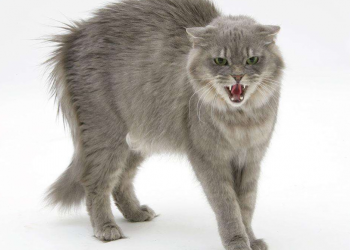Nowadays, many people like to keep pets more and more, so you must know the basic common sense of pets. For the healthy growth of pets.

1. Measure body temperature: The level of body temperature is an important sign of the health of cats and dogs. Generally, the body temperature of puppies is between 38.5-39.5 degrees, and the body temperature of adult dogs is between 37.5 and 38.5 degrees. The normal body temperature of cats is between 38.5 and 39.5 degrees. As a pet owner, you must remember to check your pet’s temperature every morning and evening.
2. Observe the pet’s breathing: dogs breathe 10 to 30 times per minute, cats and cats 20 to 30 times per minute.
3. Pulse: 70 to 120 beats per minute for dogs; 120 to 140 beats for cats, high or low are unhealthy.
4. Deworm pets regularly: cats and dogs are prone to parasitic diseases such as mites, roundworms, tapeworms, fleas, Clonorchis sinensis, lice, etc. Usually pets should be dewormed 20 days after birth. Adult dogs and cats are dewormed every six months.
5. Regularly vaccinate pets: It is very important to vaccinate pets. Dogs and cats should be vaccinated every year; puppies should be vaccinated 15 days after weaning, 3 times in a row. Deworming should be done one week before the vaccination, otherwise the efficacy of the vaccine will be affected.
6. Regularly bathe pets: cats and dogs should be bathed every 7 to 15 days, and special baths should be selected, otherwise they are prone to skin diseases.
7. Exercise health care: Different growth periods, different breeds of dogs and cats have different requirements on the amount of exercise. During the growth period, a large amount of exercise is required, otherwise, lack of exercise will lead to obesity.
8. Disinfection: Disinfection of utensils, rooms, animal houses, environments, etc. every day can reduce human and zoonotic diseases.
9. Diet: The best staple food for dogs and cats is dog food and cat food. Because of its scientific formula, it can meet the growth needs of pets such as protein, carbohydrates, fats, vitamins and inorganic salts. Long-term consumption of meat, liver, bones and other foods is harmful to the health of pets. Dogs are prone to poisoning by eating onions and excessive vitamins A and D.
10. The most common infectious diseases in dogs and cats are cat distemper, canine distemper, parvovirus enteritis, infectious hepatitis, etc., which are life-threatening. Its main manifestations are: sneezing, dry nose, runny or purulent nasal discharge, depression, cough, eye mucus, loss of appetite or abstinence, vomiting, diarrhea, thirst, yellow feces, and foul feces. Feline viral rhinotracheitis manifests as coughing, sneezing, fever, and tearing. In the early stage of cat rabies, it likes to hide in the dark, depressed, straight eyes, and aggression suddenly; If pets have appeal symptoms, they should go to a specialist pet hospital for diagnosis and treatment in time. Early detection and timely treatment will lead to life-threatening delays. The pet leader reminds everyone that basic common sense is a must for new owners. For the healthy growth of pets and the health of their own families, it is necessary to observe the status of pets in real time, so that we can have a better life




















